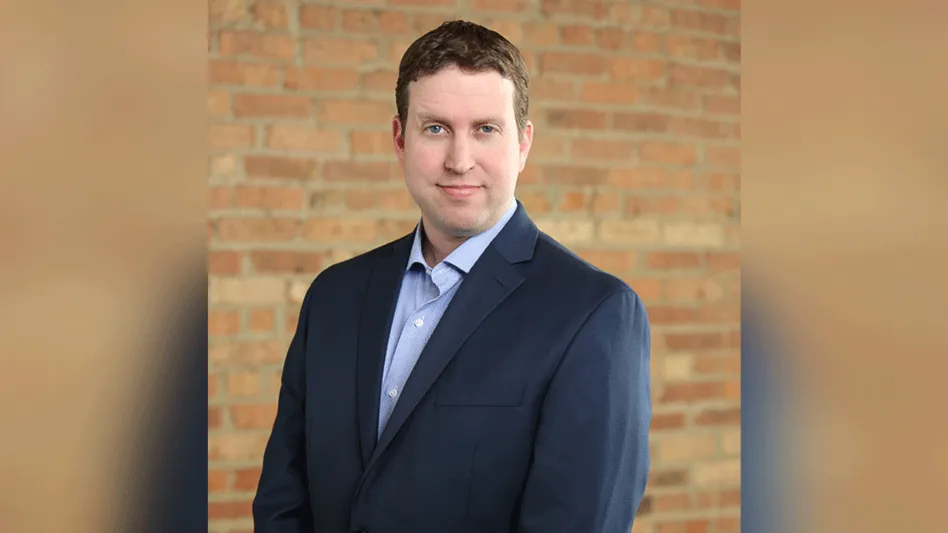
Headshot Courtesy of BeLeaf Medical
After spending more than a decade in cultivation leadership roles at multistate operators Cresco Labs and The Green Solution, Jason Nelson has taken the helm of Missouri-based BeLeaf Medical, a vertically integrated operation, which was part of the state’s adult-use market launch in February. In this conversation in April, Nelson explained why he’s approaching new initiatives and expansion cautiously, and why he considers the illicit market when pricing products.
Michelle Simakis: You just came off a successful adult-use launch in Missouri, which topped $100 million in sales its first month of combined adult-use and medical sales. What challenges did you confront during the transition?
Jason Nelson: We thought it would be a relatively successful adult-use launch. We knew that there was quite a bit of latent inventory both on the wholesale side and retail. And then eventually we did have a couple of weeks of supply chain volatility in the first and second weeks of March. So you’re seeing month over month growth. … Now it’s just a matter of, can we keep this trend going? Can we keep prices intact and equitable?
MS: Several states with adult-use markets are facing severe price compression. How do you keep prices equitable while also keeping them stable and in a place where plant-touching companies can be profitable?
JN: Certainly it is important to understand who your consumer is part and parcel to the illicit market that they also have an option to engage. I know the quality is equal if not better. I certainly know the contaminants are likely less, right?
So if I understand that I’m having that conversation, I believe for the menu variety, for the safety of products, I can talk to you about a 15 to 20 percent price increase over the illicit market. I’m going to find that “better brand” spot that Sam Adams finds, which is to say, you’re not going to please every purchaser always with this particular SKU. For example, our CuCo value brand offers strong quality at $38 per quarter alongside other equitably priced raw flower products. But they’re going to open up the package, they’re going to be happy, they’re going to repeat that transaction.
RELATED: Beyond The Show With Jason Nelson
What lessons are you taking from your prior experience moving from medical to adult-use markets?
JN: In an adult-use market transition, you really need to lean in and reconcile your operating costs while leveraging market-leading SKUs. ... Most firms are still in a poor position to burn capital on anything. It’s just not the right time to do it. So by extension, then, I’m going to dial back a little bit of my innovation with respect to new SKU development and/or novel business initiatives. If you’re not approaching 2023 as a year of reconciliation, you risk that same unfortunate outcome that we’ve seen in the last couple of years. Firms are overleveraged and have to cut back 20% of staff within any particular business unit.
MS: What do you envision for the BeLeaf brand in the future, considering the possibility of federal legalization and interstate commerce?
JN: I’m sure we’ll have a couple of brand partnerships pop up with some reciprocity. We are excited to have launched a brand partnership with a social equity license recipient out of Chicago Heights. They are working to get financing and are challenged when not wanting to give up big chunks of equity to acquire start-up capital. BeLeaf will produce and bring to market their inaugural edible line, getting some sales revenue on their books prior to the completion of their production site. It is a distinct advantage to demonstrate pre-operational revenue streams when they’re having these financing conversations in an otherwise bearish investment climate.
BeLeaf could likely find $5 to $10 million of “plant the flag” capital and deploy in any number of the newly emerging states, and I do believe those efforts can reconcile successfully over time. The current operating climate risks a failing prospect amongst excessive tax burden and high cost of capital while having to burn cash for so long in the meantime. In my current take, it’s just too risky.

Explore the June 2023 Issue
Check out more from this issue and find you next story to read.
Latest from Cannabis Business Times
- Cannabis Industry Reacts to Biden’s Rescheduling Announcement
- As Predicted, 4/20 Sales Surged During Cannabis Industry Holiday Weekend
- DEA 2024 Report Focuses on THC Potency, Organized Crime, Youth Edible Consumption
- Nature's Miracle, Agrify Sign Definitive Merger Agreement
- 5 Things to Confirm When Signing a Cannabis Facility Construction Agreement
- Ziel Partners With Portocanna, Receives 1st EU GMP Certification for Microbial Control Technology in Cannabis
- White House Moves to Reschedule Cannabis in ‘Monumental’ Decision, Biden Says
- SOMAÍ Group, and Its Subsidiary, RPK Biopharma Expand Cookies Partnership to Include Europe and the UK





